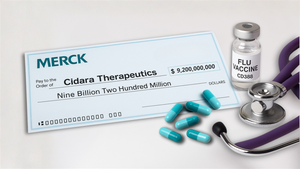(BPT) - Ketamine and other anesthetic drugs have emerged as a powerful new tool to rapidly treat depression, especially for people who don't benefit from traditional therapies. With conversations regarding these drugs circulating in the news and online, anesthesiologists - physicians who are experts in using them to sedate patients during surgery - are shedding light on the latest research and recommendations to ensure they are used safely as a mental health treatment.
More than one in five U.S. adults lives with a mental health illness (57.8 million) and over 21 million Americans had at least one major depressive episode in 2021. Many individuals with depression experience symptom relief with psychotherapy and antidepressants, but for nearly one-third (30%) of patients these therapies are ineffective, known as treatment-resistant depression.
'The current research into these drugs offers hope to people with a common, debilitating and potentially fatal mood disorder,' said Peter Nagele, M.D., an editor at Anesthesiology, the peer-reviewed journal of the American Society of Anesthesiologists (ASA). 'With this new use for common anesthetics, we believe it is important to use our knowledge and training, working collaboratively with psychiatrists, to advance patient care and safety. This includes ensuring patients receive this treatment under the supervision of a physician and in an accredited clinic following established safety standards.'
On World Mental Health Day, ASA shares the latest information on the various anesthetics being repurposed, how anesthesiologists and psychiatrists may be able to increase their collaboration, and questions patients should ask.
Anesthetics Being Repurposed for Treatment of Depression
Ketamine's unique benefits include working in minutes or hours vs. weeks, compared to traditional antidepressants, and its persistent positive effects on mood. Ketamine originally was developed to induce and maintain anesthesia and its antidepressant effects were first identified in 2000. When used to treat depression, it is administered at a low dose intravenously (IV therapy), as a U.S. Food and Drug Administration-approved nasal spray or a combination of both in a series of treatments given over a few days or once a week. After a single treatment, a patient's symptoms may improve for days or even weeks.
While most studies have focused on ketamine, researchers are also looking into nitrous oxide, more commonly known as laughing gas, and IV propofol, a common anesthetic used during medical procedures, among others. As with ketamine, patients' depression scores have improved during preliminary trials, and there is evidence nitrous oxide's effects last beyond the initial treatment.
Further research is needed to fully understand why these drugs are so effective against depression. Scientists believe it may be because they act on different receptors and address imbalances between chemicals in the brain.
How Anesthesiologists and Psychiatrists are Partnering to Help Patients
The authors of a special article recently published in Anesthesiology recommend anesthesiologists take a more active role in the repurposing of anesthetic drugs as antidepressants. They propose developing a subspecialty focused on anesthetic neuropsychiatry that includes physicians and researchers who can serve as liaisons between these two specialties and help collaborate activities including:
- facilitating joint research training with an emphasis on postgraduate degree programs,
- sharing in the design of clinical trials,
- conducting interdisciplinary departmental rounds, and,
- combining efforts to advance technologies in brain imaging.
What Patients Need to Know
While ketamine and other anesthetics show great promise in treating depression and anxiety for certain patients, they may have side effects and can be dangerous if not used or administered correctly.
ASA encourages patients interested in these drugs to ask the following:
- Is this treatment right for me? These drugs do not offer a universal cure and patients need to be evaluated and selected carefully by a psychiatrist for these treatments.
- Where will I receive my treatment? Patients should receive the medications only under medical supervision, such as in an accredited clinic with established safety standards.
- Who is prescribing my treatment? These drugs need to be prescribed, administered and carefully managed by skilled physicians.
To learn more about anesthesiologists, anesthesia 101, pain management and more, visit: https://madeforthismoment.asahq.org/.






